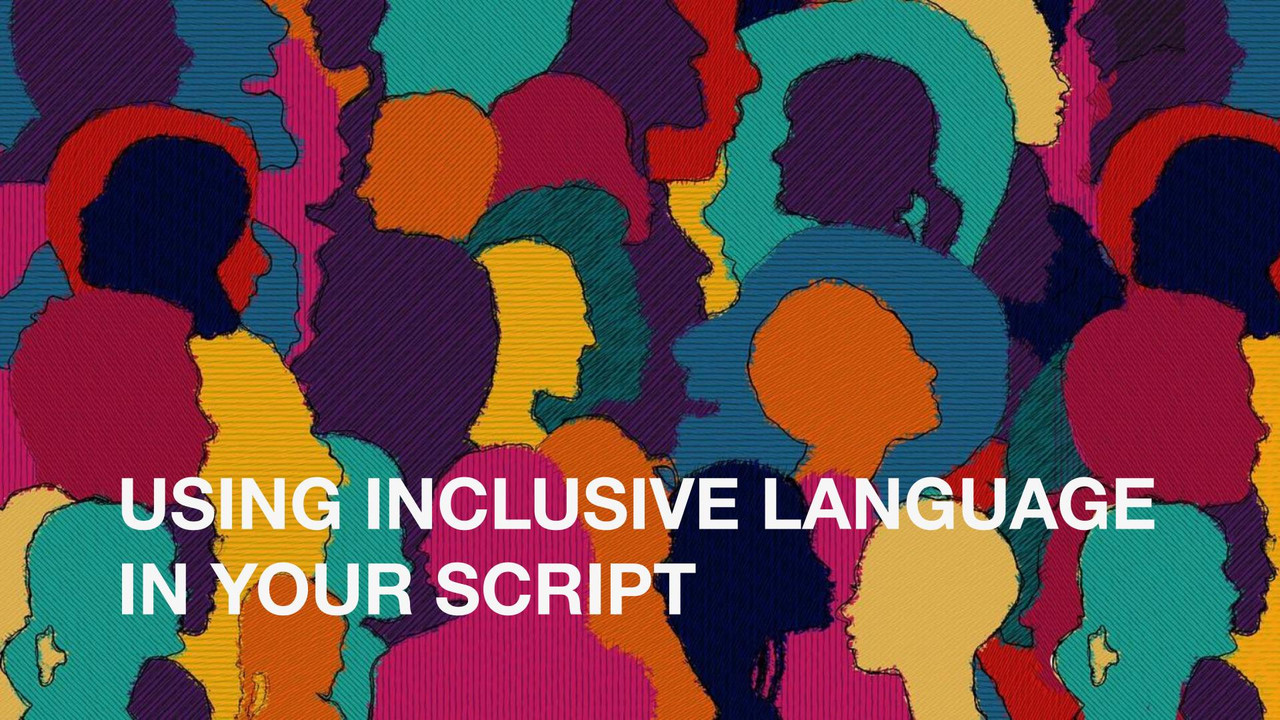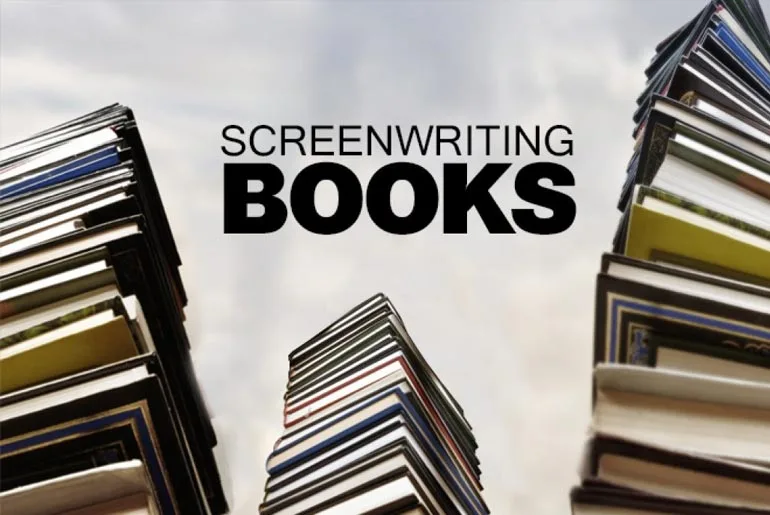Though they started with a scriptwriter and an idea, your preferred movies are not the only ones you may create with those tools. Best Books On Screenwriting For Beginners Learning what skills, formats, and expectations are needed before you bring a pen to paper (or hands to keyboard!) can help you enter the realm of screenwriting.
How do you pick up the ability to write for screens? By picking lessons from other scripts and screenwriters. Writing a screenplay follows particular guidelines; hence, knowing the correct resources will assist you on your screenwriting path.
We have thus selected the best screenwriting books and divided them according to topic. Whether your experience is years old, you just started writing, or you just joined film school, staying current with the latest screenwriting techniques is essential, and we have you covered.
How can one learn to write for screens?
From generating a pitch to developing a finished story, screenwriting is a fascinating career. Ultimately, all of it is about creating movies. Still, how can one enter the symbolic door?
How can your love of screenwriting become a fully fledged career? Discover the screenwriter's technique by keeping on reading:
Learn from the best screenwriters.
Given the thriving screenwriting business and the abundance of working specialists, why not benefit from it? Two books authored by accomplished screenwriters below will assist you on your own screenwriting journey.
Marie Drennan, Yuri Baranovsky, and Vlad Baranovsky's Writing for the Digital Age provides motivated readers with a comprehensive guide to scriptwriting for web series—specifically in the digital age.
This basic book covers series and solo works, as well as the differences between short- and long-form webisodes. They also probe the reasons behind their decision to pursue scriptwriting.

How do you write for marketing trends and your film audience?
While creating a passion project script is important, it also has to appeal to a film audience. Watching global and national marketing trends in the film industry helps one determine whether a screen concept or foundation has the components for success.
Understanding what viewers desire will assist screenwriters in finding producers and financiers eager to move forward with their project. See Andrew Stevens' Screenwriting for Profit: Writing for the Global Marketplace for an insider's view of what might make a decent script outstanding.
Although your passion may be screenwriting, it also has to be successful—that is, profitable—if you want to be sustained over long terms. Chapters 4 and 5 of this book examine the salient features of the market to be taken into account as well as how best to apply that knowledge in your line of work.
Read also: The Power Of The Strong Hand: A Movie Guide
Screenwriting Tips
Examine Your Craft: Like any craft, screenwriting is a specific ability that calls both study and experience. Start by reading screenwriting books, enrolling in online classes, or even formally entering the subject of study. Crucially, one must grasp the foundations of speech, character development, and screenplay construction.
Watch Films: If you want to master screenwriting, see a lot of movies. See how various genres approach pacing, character development, and narrative technique. Examine both old and modern films to observe how effectively screenplays translate.
Build strong characters: Any great script revolves around memorable people. Spend some time building well-rounded people with unique personalities, motives, and arcs. Deeply knowing your characters will help you to authenticate their behavior and speech.
Masters Discussion: Screenwriters have to develop their ability to create interesting and successful conversations. Good conversation shows character, relationships, and subtext in addition to knowledge. Every character should have a voice that captures their own nature.
Structure is key: Structure is the backbone of your screenplay. Although the three-act structure is a popular framework, if another might better fit your narrative, don't hesitate to investigate other forms. A well-defined framework supports the clear and intriguing narrative.
Show, Don't Tell: Screenwriting uses this basic idea. Instead of simply stating what is happening, show the audience what is happening through character actions, facial expressions, and the way events are developing. More specifically, subtleties and visual storytelling can transmit knowledge and feelings.
Conflict and Resolution: In conflict, good screenplays abound, propelling the plot forward. Every scene should either highlight significant information, advance character development, or generate conflict that results in an intriguing resolution.
Rewrite and Edit: First drafts should not depress you. Actually, your first draft usually represents the toughest form of your script. You really must polish and edit your work. Get comments from expert script readers, screenwriting clubs, or colleagues. Get ready for several rewrites.
Know Your Genre: Various genres carry their own standards and expectations. Whether your work is in science fiction, romantic comedy, thriller, or another genre, know its particular needs. Find out why that genre appeals to its readers.
Pitch and networking: Screenwriting entails selling your ideas as much as writing. Learn how to pitch your script successfully, whether you are pitching it to directors, potential producers, or at pitch events. In business, networking is vital; hence, go to events, join associations for professionals, and network with other writers and business leaders.
Stay persistent: Those who tenaciously pursue screenwriting typically find success. Though they are inevitable on the road, rejections can be insightful educational opportunities. Keep writing, turning in your work, and always sharpening your skill. Pursuing screenwriting is difficult yet worthwhile. Success in this cutthroat industry can be achieved by constantly improving your abilities, learning from others, and having tenacity.
Once your screenplay is in hand, what should you do?
If you have read any of the preceding books, you are more than ready to start investigating the logistics following script completion. This book is a terrific tool for you to advance your first draft beyond just excellence.
David Landau and David Bennett Carren's Next Level Screenwriting: Insights, Ideas, and Inspiration for the Intermediate Screenwriter is for readers seeking middle ground.
From character to language to topic, this book walks readers through the ways screenwriters could enhance and update their scripts. It also includes case studies and challenging tasks meant to inspire film writing.
A scriptwriter and a screenwriter differ in what exactly?
Generally speaking, screenwriter and writer can be used synonymously. Still, it's preferable to consider scriptwriter as an umbrella term if you wish to know how they could vary in use.
A scriptwriter is a person who generates scripts. This covers any kind of production, including radio, theater, television, and movies. A screenwriter could then be regarded as a subset of scriptwriting. This writer works for "the screen," meaning works including movies and television.
The Best Books for Specialized Topics in Screenwriting
Every screenwriter writes from their own life events and background. This is really priceless in terms of creative inventiveness and varied scriptwriting technique.
On the other hand, if you are writing with particular themes, genres, or budgets in mind, it might be equally vital to have tools for direction and advice. We've selected the top screenwriting books for writers who would benefit from others who have done it before.
Read also: In Memoriam 2023 Tribute: Movies & TV
Creating an inclusive story for a script
Over the past several years, the modern world of movies has become more welcoming and created opportunities for many fresh narratives and personalities to take the stage and screen. There are several advantages to this, which builds on the current viewers who haven't seen their stories presented on the large or small screen.
For some, though, creating an inclusive screenplay could be difficult as the pool of cinema specialists and past successful projects is less than that of the usual action-packed blockbuster. Best Books On Screenwriting For Beginners Use Jess King's Inclusive Screenwriting for Film and Television to assist you on your path to inclusive screenplay writing.
This book looks at the conventional forms (such as mythic structure) of scripts and discusses ways to convey different life stories using in-depth case studies and analysis.

developing micro-budget film scripts
Not every film project undertaken by a screenwriter receives the funding it needs. Particularly in the early years of a writer's career, the film can wind up working with a microbudget. What does this mean for the script? In many respects, it restricts story components, including clothes, character decisions, and locales.
Working with a microbudget calls for these factors and more that the script should foresee. David J. Greenberg's Screenwriting for Micro-Budget Films:
Advice, Tricks, and Hacks for Reverse Engineering Your screenplay will be taught to you by an expert. Greenberg outlines possible difficulties and how authors could craft a successful screenplay for a low-budget project using his own work experience and film case studies.
Developing movie versions of current events.
From graphic novels to comic books to classic classics, some of the best movies originate in other literary forms. Just consider the several great adaptations created from Stephen King's works.
Changing these already-existing tales into a gripping screenplay fit for their structure calls for a particular kind of writing. Though scenes, characters, dialogue, and more may be modified or rewritten to fit its new film or television platform, the tale must be whole.
See Great Adaptations: Screenwriting and Global Storytelling by Alexis Krasilovsky. Designed for both novice and advanced screenwriters, this book addresses script adaptations with useful, current guidance.
Creating quick flashes.
A short film transcends a mere screenplay. It must present a narrative within a constrained period of time without compromising character development or story quality. Best Books On Screenwriting For Beginners While a screenplay must incorporate internal ideas and emotions without writing it all out, a short story lets authors include these things.
With Claudia Hunter Johnson's Crafting short screenplays that connect, learn how to write for short films. This creative book focuses on the human experience and how it may be turned into a beautiful short film narrative inside a story.
Read also: Top 5 Overrated Movies of 2023: The (Very) UnPopular Opinion
Composing specifically for particular film genres
Every film genre has unique narrative, character, and storyline expectations that appeal to viewers. Without a reasonable red herring, what is a mystery movie?
Alternatively, a romantic movie lacking an unforeseen conflict to challenge the happiness of the main pair. After all, Pulp fiction became popular because of more than just spectacular writing.
Using the books below will help you start creating your preferred genre movie:
- Horror: Neal Bell's How to Write a Horror Movie."
- Writing the Comedy: Manny Basanese's Comedy Pilot Script
- Theatrical: Martie Cook's TV writing
- Love: Jule Selbo's Film Genre for the Screenwriter
Taylor & Francis's additional screenwriting materials
Use Taylor & Francis materials to help with your screenplay. Whether your level of experience is that of a novice or an accomplished screenwriter, we have books and tools to help you succeed.
FAQ's: Best Books On Screenwriting For Beginners
How do I start learning screenwriting?
- Create your story concept. The first step is to create your story concept.
- Brainstorm specific ideas.
- Conduct background research.
- Develop the characters.
- Create an outline.
- Write a first draft.
- Revise your draft.
- Follow all technical guidelines.
What is the best book on how to write a screenplay?
It's the screenplay book I most strongly suggest to aspiring authors, and it may be the most well-known or infamous of all time. Save the Cat simplifies story structure for beginners by breaking it down into essential plot sections.
Can you be a self-taught writer?
If you've always loved stories, TV shows, and movies, this skill set may come more naturally to you, but it still requires a lot of experience and several drafts to develop. If you are a self-taught screenwriter, you should study screenplays on a daily basis in addition to literature about the craft.
What are the three C's of screenwriting?
Concept, character, and conflict are the three fundamental components of screenwriting, if you had to distill things down to their most basic form. These three components are necessary for scripts, television plays, movies, and television shows to be successful.
What is the difference between screenwriting and scriptwriting?
Despite their frequent interchangeability, the phrases "scriptwriter" and "screenwriter" have different meanings. A story is written by a screenwriter with the intention of being shown on a screen. In contrast, a scriptwriter crafts a dramatic tale suitable for presentation in different mediums, including live theater.
Can I write a screenplay with no experience?
When you lack experience and are unsure about what to do, what do you do? The good news is that everyone can write a screenplay! To write a story and have the patience to learn the screenwriting craft, all you need is a story.
Is it harder to write a book or screenplay?
The basic narrative structure of both of them is the same. Both are subject to the same story principles. Indeed, a screenplay can serve as a fantastic novel's initial draft. You may test the characters and the structure in the script, which is much quicker to write.





